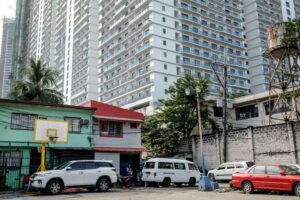SC clears former BSP officials of graft charges over Banco Filipino closure

THE SUPREME COURT (SC) has cleared former officials of the central bank and its policy-setting Monetary Board (MB) of graft charges filed by executives of the defunct Banco Filipino Savings and Mortgage Bank (BFSMB) over its closure.
In a 14-page resolution on Oct. 3 and made public on Oct. 20, the SC First Division affirmed a Court of Appeals (CA) decision that said the central bank officials were not liable for graft charges.
The Office of the Ombudsman’s previous ruling had become final and executory after BFSMB officers brought the case to the appellate court instead of the SC, it said.
“Clearly, petitioners have lost their right to assail the Ombudsman’s findings of absence of probable cause,” the High Court said in the ruling. “The CA, therefore, did not commit any reversible error in denying their petition for availing of the wrong remedy.”
In 2011, BFSMB executive vice-presidents Maxy S. Abad and Francisco A. Rivera and Mary Lou A. Vasquez, who represented the bank’s stockholders, filed graft charges against then BSP Governor Amando M. Tetangco, Jr., deputy governors Nestor A. Espenilla, Jr. and Juan de Zuniga, Jr., and Monetary Board members Juanita D. Amatong, Alfredo C. Antonio, Ignacio R. Bunye and Peter B. Favila after they ordered the bank’s closure and denied the lender’s application for emergency loans worth P25 billion.
In 1985, the then central bank ordered the closure of BFSMB. The bank was allowed to resume business in 1993 after the Court found its closure was illegal, leaving suits between the lender and regulator’s former officials pending.
In 2002, Banco Filipino asked the BSP for emergency loans and regulatory reliefs due to heavy withdrawals. However, the central bank said the lender needed to submit a rehabilitation plan for the regulator’s approval before it can be granted financial assistance.
BFSMB submitted a revised business plan to the BSP in 2009. The Monetary Board that same year said it would grant the bank’s request for financial assistance and regulatory reliefs, provided that its officers would withdraw all spending lawsuits filed against the BSP and its officials, among others. BFSMB refused to agree to these conditions.
On March 17, 2011, the Monetary Board again ordered the bank to stop operating and placed it under the receivership of state-run Philippine Deposit Insurance Corp., after its liabilities exceeded its assets.
In 2012, the Department of Justice (DoJ) said the BSP officials and MB members did not act in bad faith or violate any banking laws in ordering the bank to close down and for the terms and conditions it imposed for the grant of financial assistance to BFSMB.
The Ombudsman agreed with the DoJ as it ruled that the MB’s refusal to release the amount was not illegal.
“The issue on the proper remedy from decisions of the Ombudsman in criminal cases is not controversial, and petitioner’s contentions are not novel,” said the High Court. — JVDO




